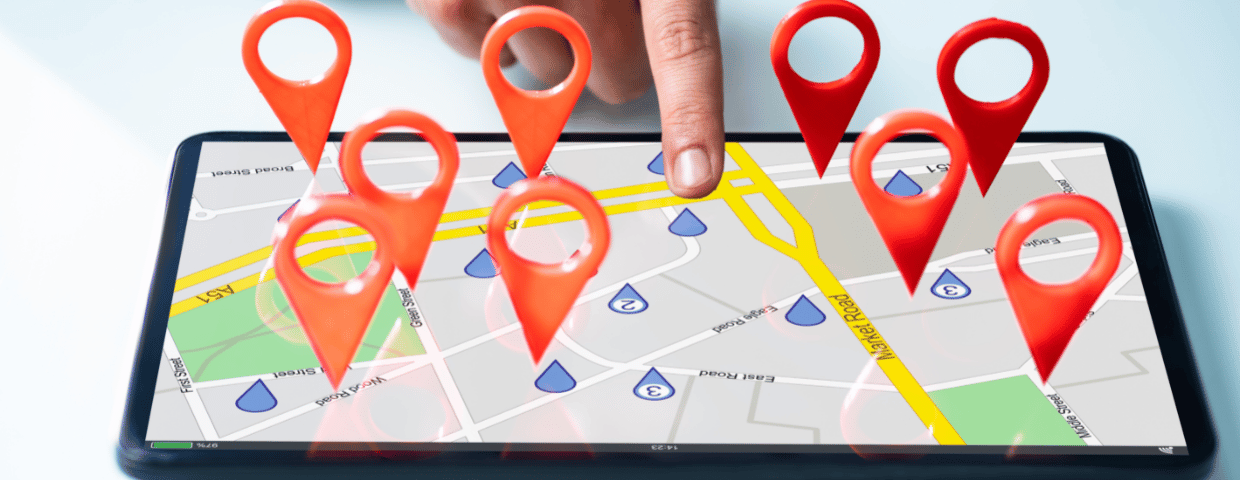Local SEO: What Is It and Why Should You Care?
Posted by Alicia Quilantan on Mar 14, 2023 12:40:00 PM

Local search is essential for service-based industries with clients in the same area. We all want to be included in local search queries related to our industries—for instance, for our client, Naylor's Auto Repair, that would be [auto mechanic near me]. By creating and optimizing your Google My Business listing and your website content for your local audience, you can improve your site’s local visibility.
What is Local SEO?
Local SEO is putting search engine optimization efforts toward local search results. What does that mean to Google? Local SEO helps Google rank your business listing and your local organic search results. When you give Google more information on your Google My Business listing, you can rank higher on the Google Map Pack and appear more often for related search queries.
What Is The Google Map Pack
The Google Map Pack is the section displayed typically above the organic search results and contains all the local results and showcases the top-ranking listings for your location or the searched location.
Here is the information you should include in your listing:
- Business name: This is hyperlinked to your business listing
- Rating: This is generated by Google and is the number and quality of reviews (# of stars). By encouraging customers/clients to rate your business, you help your business’s ranking.
You can find information about review removals here. - Price: This is Google’s assumed price of your goods or services seen as dollar signs ($$).
- Address: This is the physical location of your business. If you are an online business, you will not have one of these. You can include the areas you serve instead.
- Hours: The days and hours your business operates.
- Description: A short and sweet description of what your business does
- Service options: This specifies if your business offers in-store services, online bookings, dine-in, delivery, etc.
- Tag: This designates what type of business you are (ex: clothing, window cleaning, digital marketing)
Searchers can click on a listing to learn more about the company, like their phone number, or pull up directions to their location. Optimized Google My Business listings like Tribute Media’s for example, have all the works. Ours includes photos (real ones, not stock images), reviews (with company responses!), link to make an appointment, link to the website, links to social media profiles, a snippet about what we do and who we are, the area we serve, and posts.
WOW right? Your Google My Business listing is one powerful tool. Not only can it increase your company’s online presence but it can also be the one-stop-shop for your potential customers to learn more about your business and complete a transaction - and for some businesses, they can do all of this before visiting your website!
Why Is Local Search Important?
Think about how often you rely on Google Maps to find the location of a business or type of service. If you are a service-related business and aren’t on the map, people will most likely drive right past you on their way to one of your competitors. Optimizing your local search increases your business awareness to your audience across the marketing funnel.
How To Apply Local SEO To Website Content
There isn’t a magic formula to get instant local traffic to your website. The main difference between your website content and local content is search intent. When creating your website content, it is essential to consider the local user and how they will engage with it.
When creating local content, try these tips:
- Use local phrases. Optimizing your main navigation page titles and meta descriptions with local terms makes you more likely to attract local visitors.
- Use a conversational tone. You don’t have to write every blog as if it was a scholarly article—that’s what Google Scholar is for. Write for the average human in an easy-to-read format that answers their questions.
- Use images. Don't just use stock images—add personal, unique photos that complement your content and assist with a compelling story.
- City-specific landing pages. Do you have multiple locations? Try creating separate pages for each location to dial in the local keywords.
How Does Google Determine Local Ranking?
According to Google, local rankings are determined primarily by relevance, distance, and prominence. What does that mean?
-
Relevance: How closely relevant is your business listing to what the search query is.
-
Distance: How far (or how far Google thinks they are if their location is not known) the search query and user are from the result.
-
Prominence: How well-known your business is. This can come from links across the internet to your website, reviews, articles, and your web results position.
How Google Sources Information
Google uses what it can find on your website and the information you provide to provide the most up-to-date information about your business. That is why keeping your website information current and as relevant as possible is essential.
What Businesses Benefit The Most From Local SEO?
Service-based businesses whose primary audience is local customers benefit the most from local searches. These businesses can include but are not limited to brick-and-mortar stores, construction trades, personal and professional service providers like housekeeping, law firms, medical offices, small business owners like boutiques, restaurants, marketing agencies, pet care and boarding, and more.
In short, the key factors for successful local search engine optimization include accurate and consistent business information across your website and Google My Business listing, high-quality content (on both your pages and blogs), positive customer reviews, and effective use of keywords and metadata.
Written by Alicia Quilantan
Alicia is the Search Engine Optimization specialist at Tribute Media. When she is not completing a new certification or reading blogs about SEO and PPC. She is spending time with her dog, traveling the US, and studying French.


